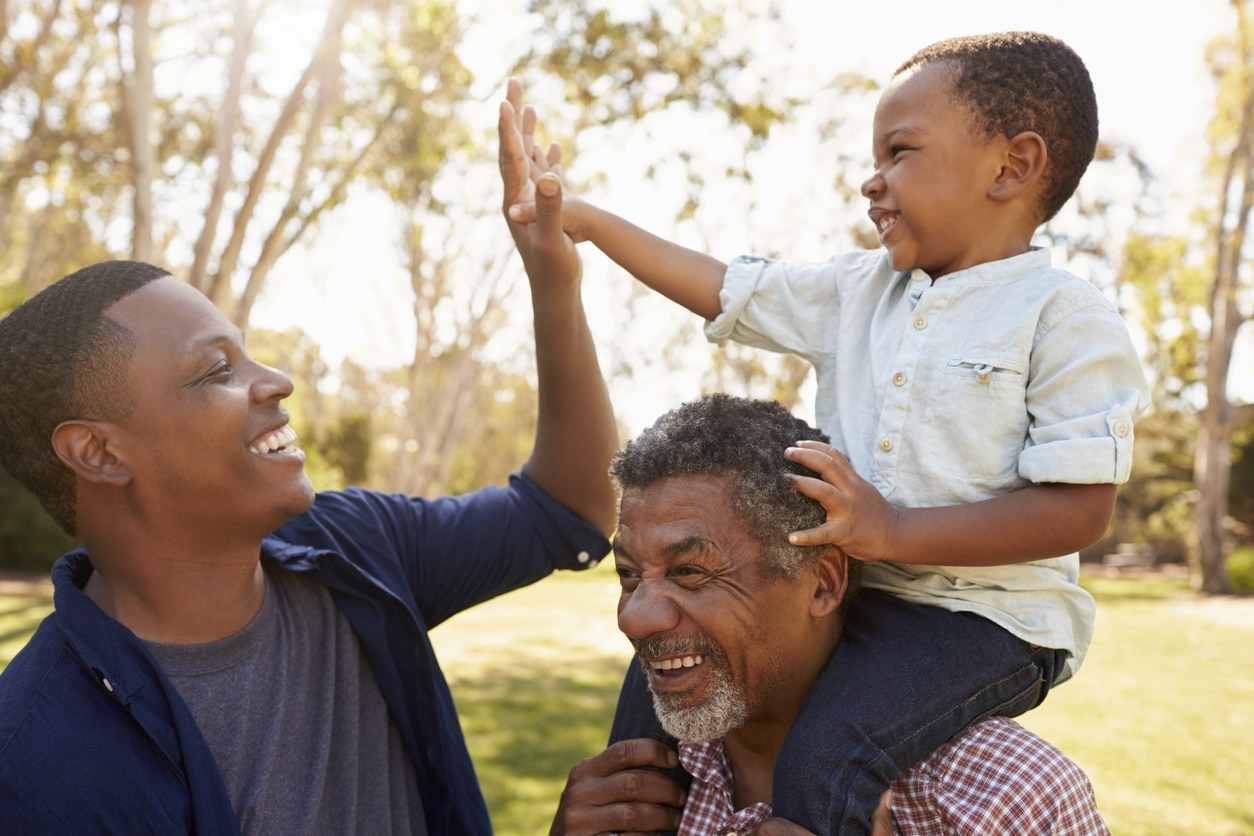Scrapbooking is an easy activity that can improve memory and create a family heirloom. It’s a fun way to collect special memories in one place and stimulate different parts of our brains related to remembering and decision-making. Here’s how.
5 ways scrapbooking is good for brain health
Scrapbooking engages our brains
One of the best ways to keep the brain sharp as we age is to keep it engaged.[i] Scrapbooking requires us to make decisions (what to include, where to put it on the page) and organize, which lights up the frontal lobe. Even the movements required to cut and place items work out our brains. And when we recall favorite people, places, and experiences and when they occurred, we activate the hippocampus.
Scrapbooking encourages social engagement
Building a memory book is a terrific multi-generational activity. Get family and friends together to reminisce. They’ll have additional perspectives on shared events and mutual contacts. This can be especially meaningful for younger people, enabling them to build stronger connections to you and your family’s history. Social engagement isn’t just fun – it’s an important aspect of aging well. Staying socially active stimulates our brains and reduces feelings of isolation and loneliness that can lead to anxiety and depression. Learn more about combatting isolation and loneliness.
Scrapbooking creates a memory lane
Making a scrapbook creates a path we can follow from past to present. For example, scrapbook pages illustrating the family tree can include photos and names of each member in every branch. The visual helps us remember names and connections. This can be especially helpful for people with mild dementia, Alzheimer’s and other cognitive conditions.
Scrapbooking promotes creativity
Being creative helps keep our brains agile and active, and you don’t have to be an artist to reap the benefits. Scrapbooking is a creative activity even the least artistic among us can succeed at! According to The National Endowment of the Arts, creativity stretches our working memory and challenges us to think differently and make decisions.[ii] And for people living with cognitive issues like mild Alzheimer’s or dementia, creative projects like scrapbooking can help improve their quality of life. Check out how creativity benefits mental and physical health.
Scrapbooking influences mood
Recollections of the near and distant past evoke emotions that impact our mood.[iii] For many people, reminiscing sparks positive feelings of a life well-lived and strong connections with family and friends. It can also bring on feelings of longing or sadness. These emotions are all part of life, of course, but we should consider our current emotional health when choosing activities. If you’re feeling down or anxious, contact your healthcare provider to get the help you deserve.
Important: Scrapbooking isn’t a treatment or a cure. If you or a loved one experiences difficulty with remembering and forgetfulness, talk to your doctor or nurse so you can get the support you’re entitled to.
Cognitive and social benefits aside, scrapbooking creates a beautiful family heirloom to pass down for future generations to enjoy and for those who want to learn more about their family history. Scrapbooks create a lasting memento of important people, places and events in your life.
Don’t disregard professional medical advice, or delay seeking it, because of what you read here. This information is not intended as a substitute for professional consultation, diagnosis or treatment; it is provided “as is” without any representations or warranties, express or implied. Always consult a healthcare provider if you have specific questions about any medical matter, and seek professional attention immediately if you think you or someone in your care may be experiencing a healthcare condition or medical emergency.
[i] National Institute of Neurological Disorders and Stroke. Brain Basics: Know Your Brain. https://www.ninds.nih.gov/health-information/public-education/brain-basics/brain-basics-know-your-brain
[ii] National Endowment of the Arts. How Creativity Works in the Brain. https://www.arts.gov/sites/default/files/how-creativity-works-in-the-brain-report.pdf
[iii] Khan, Arshia, Alex Bleth, Marat Bakpayev, and Nabiha Imtiaz. 2022. “Reminiscence Therapy in the Treatment of Depression in the Elderly: Current Perspectives” Journal of Ageing and Longevity 2, no. 1: 34-48. https://doi.org/10.3390/jal2010004




